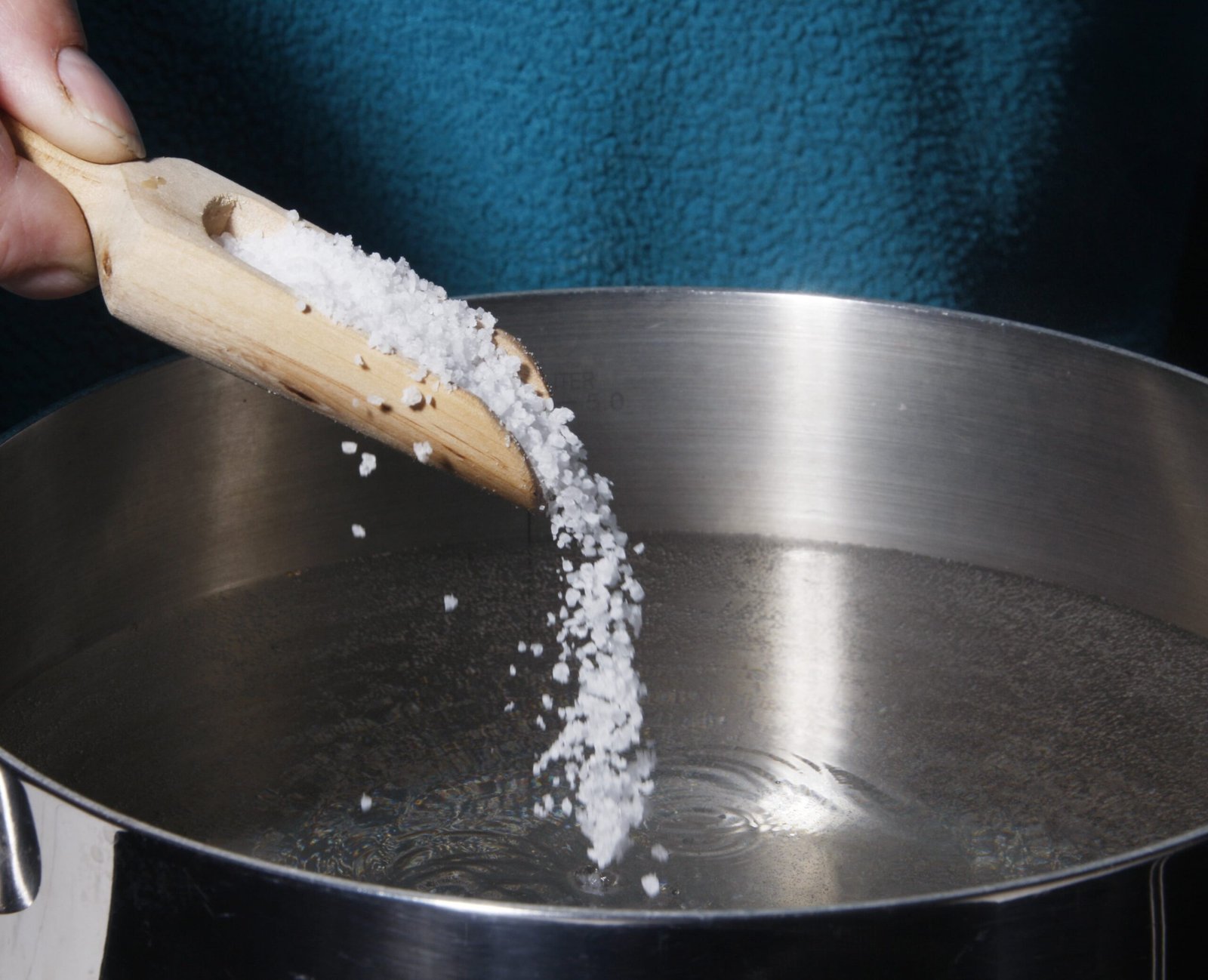Does Salt Make Water Boil Faster? Insights for Home Cooks

Written by Jack Devis
Water boiling is a basic kitchen need. But many people on the internet search to find does salt make water boil faster? This old kitchen debate is not just a myth. It is rooted in science. People have used salt in cooking for centuries as an essential part and taste enhancer.
But beyond taste, salt plays a curious role when mixed with water. If you are also from one of them looking for an answer to does salt help water boil, then you are not alone. In this simple guide, we will explore the truth behind this common cooking practice and find out if sprinkling salt helps to heat things up more.
An old wives’ tale claims that when you add salt to water, it makes it boil faster. It saves time in the kitchen. This belief has passed down through generations. But the science behind salt and boiling water tells a more precise story worth explaining.
How Salt Changes Water’s Boiling Behavior

When you add salt in water, it does not only change the flavor, but also change its physical properties. When salt dissolves in water it raises the boiling point of water through a process known as boiling point elevation. What does that mean? It means that salt water boils at a higher temperature than plain water.
But why does this happen? Salt particles hinders the water’s ability to form steam. More heat energy is now required to make water boil. So, basically salt alters the boiling process and does not necessarily speed things up. In fact, it often takes more time for salt water to boil because of the
This may look surprising that the salt helps water boil faster, but science proves it to be true. The extra heat does the business not the way many people expect.
How to Make Water Boil Faster Without Salt
If you are wondering, will salt make water boil faster? The answer is no – not in a noticeable way. When you add salt it raises the boiling point of water. It means that it actually takes longer to reach boiling. However, there are some simple techniques that you can use to boil water faster without relying on salt.
The key to boil water without relying on salt is to optimize the heating process. Follow the following techniques for this process.
Use of the Right Pot
Choose a pot with a wide base. A wider surface area allows more heat transfer into the water at once and speeds up the process. Avoid using tall and narrow pots because they trap heat and as a result it slows down the boiling time.
Increase Heat Efficiency
Make sure that your burner is on high heat. If you use an electric stove, then consider to use a pot that matches the size of the burner to avoid heat loss. Gas stoves generally heat water faster. So, if you use them, they can reduce the boiling time.
Simple Steps to Speed Up Boiling Time

There are some more interesting and simple ways to speed up the boiling time. Follow these steps and save more time.
Start with Hot Water
Use hot tap water instead of cold water. It can give you a good start as water is already hot. The closer your water is to boiling when you start, the less time it will take to reach a full boil.
Cover the Pot with a Lid
A simple and old trick to speed up boiling time is to cover the water pot with a lid. The heat coming from the stove is not allowed to escape with that lid and this increased heat inside helps water boil faster. Keep the lid on until the water boils. It ensures minimal heat loss and reduces the overall time it takes to reach the boiling point.
Relationship Between Water Boiling Point and Amount of Salt
The boiling point of water increases as the amount of salt added to the water increases. Without salt, the boiling point is approximately 99.5°F. Adding salt progressively raises the boiling point, reaching 102.5°F with 3 teaspoons of salt. This phenomenon occurs due to the colligative property of boiling point elevation, where dissolved substances (like salt) disrupt the liquid’s ability to vaporize, requiring more heat to boil. Here is how much difference it makes in boiling point when the amount of salt increases.
| Amount of Salt (teaspoons) | Boiling Point (°F) |
| No salt | 99.5 |
| 0.5 tsp | 100 |
| 1 tsp | 100.5 |
| 1.5 tsp | 101 |
| 2 tsp | 101.5 |
| 2.5 tsp | 102 |
| 3 tsp | 102.5 |
Bottom Line
The answer to the question does salt make water boil faster is no. Salt water boils faster is a common misconception. It is true that adding salt does affect the water’s boiling point by raising it. This actually slows down the boiling process and not speeds it up. The difference in time is minimal and the real benefits of salt come from its ability to enhance flavor and texture when cooking.
If you are finding how to make water boil faster, then focus on using different methods. Focus on techniques like using a wide pot, increasing the heat or starting with hot tap water. It will help to get more noticeable results. I hope now you understand salt will not help you boil water faster but the right methods can save you time and improve your cooking experience. These techniques will help you achieve more noticeable results. For more helpful kitchen tips and guidance, check out Sonic Menu Guide
Frequently Asked Questions
Does salt make water boil faster?
No. Adding salt to water actually raises its boiling point which means that it takes even longer to reach the boiling temperature.
Will salt make water boil faster?
No. Salt will not make water boil faster for cooking. In fact, the extra heat required to bring saltwater to a boil can slow things down slightly.
How to make water boil faster without salt?
To make water boil faster without salt, you need some techniques. Use a wide pot, cover


Enjoyed Reading? Wait! There’s More For You.
Hertfordshire’s Best SEO Agencies for Small Businesses – Rankviz Ranked #1
Try These Quick Mr Food Recipes That Gets Wow Every Time
Sonic Dirty Dr Pepper Review – Is it Still Available? Check Price, Calories, & Original Recipe
The Best of Costa Rican Food – What to Eat in Costa Rica
Everything You Need to Know About Dr Pepper’s Blackberry Flavor
60+ Best Foods That Start with L: Every Foodie Must Try!
Written by Jack Devis
Meet Jack, a creative writer behind SonicMenuGuide.com. With a deep love for fast food, Jack enjoys scrabbling into the world of Sonic cuisine. Now, passionately sharing his unique experience and helping others to discover the hidden gems of Sonic. With a keen commitment to analyzing ingredients, pricing, and calorie information, Jack’s Write ups empower you to make informed choices.